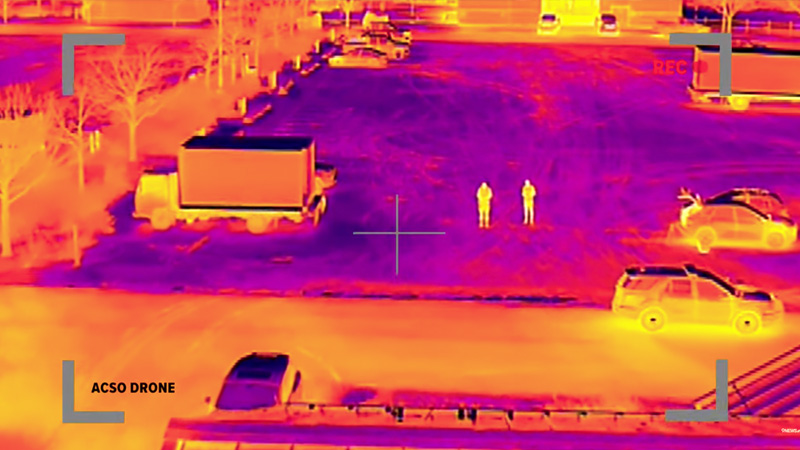While police claim they’ll use the drones responsibly, civil liberties advocates warn they could soon fill the skies and pose privacy risks.
Law enforcement in Denver, Colorado, will send out aerial drones instead of dispatching officers for certain situations, the city’s police department has announced.
The Daily Mail reports:
…The department is planning on using a $100,000 grant from the Denver Police Foundation to start the program. Denver police plan to buy several drones with that money, and begin their drone program within six to 12 months
Cops in the city, recently defunded to the tune of $8.4 million by Democrats, will reportedly use the drones to assist them as first responders, sending them to scope out and investigate incidents before deciding whether a physical police response is needed.
“The DPD [Denver Police Department] would respond to any call for service where someone is physically requesting a police officer on scene. But if there was a fight at Colfax and Cherokee and we put a drone in the air and there is no fight and nothing causing traffic issues, then we would reroute our police officers to other emergent calls,” explained Denver PD’s Strategic Initiatives Bureau director Phil Gonshak, adding, “It’s beginning to lift off.”
“We would never simply replace calls-for-service response by police officers,” Gonshak added.
The leader of Arapahoe County’s drone unit, Sgt. Jeremiah Gates, also called the drones “the future of law enforcement at some point, whether we like it or not.”
“I could fly the drone over (a reported suspicious vehicle) and say, ‘Hey, that vehicle is not out of place,’ and I never had to send an officer over to bother them and I can clear it with that,” Gates described. “It’s saving resources.”
“What if we get a call about someone with a gun, and the drone is able to get overhead and see it’s not a gun before law enforcement ever contacts them?” he added in comments to the Denver Post.
While police claim they’ll use the drones responsibly, civil liberties advocates warn they could soon fill the skies and pose privacy risks for citizens.
“We’re worried about what it would mean if drones were really just all over the skies in Colorado,” warned ACLU Colorado attorney Laura Moraff (whose pronouns are listed as “she/her” in her bio). “We are worried about what that would mean for First Amendment activities, for speech and organizing and protesting — because being surveilled by law enforcement, including by drones, can change the way people speak and protest.”
The ACLU representative also claimed the drones could lead to “over-policing” of black communities – where a preponderance of 9-1-1 calls originate.
“We know there is a problem with people reporting Black people doing normal everyday things as if there is something suspicious going on,” Moraff alleged. “So sending out a drone for any time there is a 911 call, it could be dangerous and lead to more over-policing of communities of color.
“There is also just the risk that the more that we normalize having drones in the skies, the more it can really affect behavior on a massive scale, if we are just looking up and seeing drones all over the place, knowing that police are watching us.”
Indeed, while police ostensibly profess they’ll use the drones responsibly, the reality is the technology is ripe for abuse by Big Brother, who seeks to construct a panopticon surveillance state keeping tabs on everyone.


